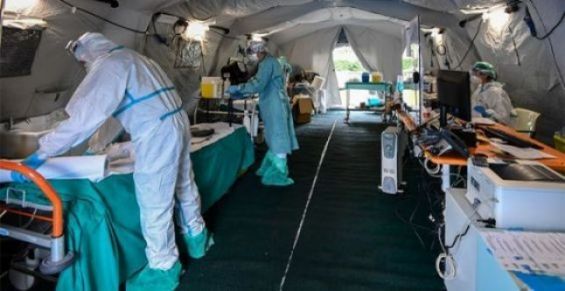Eight days before the end of the state of health emergency, Moroccan officials have hinted at the possibility of extending the lockdown, imposed since March. After the reassuring statement of the Head of government Saadeddine El Othmani, the Health Minister and the government spokesperson could not not hide their skepticism regarding exiting the lockdown.
Relying on data and statistics, experts agree that Morocco has managed to avoid the worst scenario. To Moroccan epidemiologist and infectious disease specialist Professor Jaafar Heikel, «Morocco has a relative control over certain aspects of the epidemic» and has «displayed stable trends».
«We hardly have any more serious cases, or requiring resuscitation or intensive care. We increased the rate of screening, which allowed us to detect more positive cases, with the possibility of confining them and treating them to prevent their state from worsening», he explains.
The professor recalls «the problem of new cases», noting that «since April 30, there has not been a day when we have had less than 100 new cases». He also referred to the famous R0, the basic reproduction rate (the number of people that each positive case is capable of infecting). «Clearly, we found that it went from 2.6 or 2.7 in early March to around 1 but it must be less than 1 before we can say that the epidemic curve is somehow stable and starts its decline, as is the case in several countries», he adds.
For his part, Abderrahmane Benmamoun, public health expert and WHO consultant told MAP, that «the epidemiological situation in Morocco is atypical». «Morocco is at an ideal stage, with a very low mortality rate as the containment plays a crucial role», he says.
Pr. Mohamed Amine Berraho, an epidemiologist and professor of higher education in clinical epidemiology, shares the same opinion. He said that the epidemic curve in Morocco is evolving «in a rollercoaster fashion», and believes that the evolution of the epidemic «largely depends on controlling hotspots».
A progressive deconfinement
As for deconfinement, Abderrahmane Benmamoun sees it as a «very difficult step to implement». «There is a will for a safe passage which must be carried out in a very gradual manner, because the slightest error can relaunch the epidemic», he warns. The expert even recommends that «people at risk must remain confined».
«A brutal and ill-prepared end to the confinement could relaunch the epidemic and lead to a second wave», also warns Mohamed Amine Berraho. He thus proposed a deconfinement strategy based on «identifying probable cases and allowing early diagnosis», «implementing isolation measures» and «specific measures to control the epidemic by subpopulations», among others.
But for Jaafar Heikel, whichever decision is made on May 18, there are essential factors that must be kept in mind : «the organization of our health system, the existence of our healthcare offer and how to improve it», he insists.
«We must absolutely remain vigilant, whether it comes to a gradual or final end of the lockdown. We must also continue to test more Moroccans, because there is a significant percentage of cases that are positive but asymptomatic».
Besides, on this point, the epidemiologist recalls that Morocco undergoes 1.8 tests per 1,000 inhabitants, at a time when France’s testing rate is at almost 6 tests per 1,000 inhabitants. «In developed countries, the rate varies between 5 to 17 tests per 1,000 inhabitants. There is still a lot of room. So there is a need for a strategy and knowing who will be tested after the deconfinement in order to test as many people as possible», he adds.
For Pr. Jaafar Heikel, «returning to normal life must be done with precautions, necessary wisdom and preparation». «You see that even in developed countries, there are still new hotspots appearing. These are circumscribed, but they require caution and vigilance. If we ever witness a second wave or a second epidemic peak, our health system must be able to respond to it», the epidemiologist insists.





 chargement...
chargement...












